
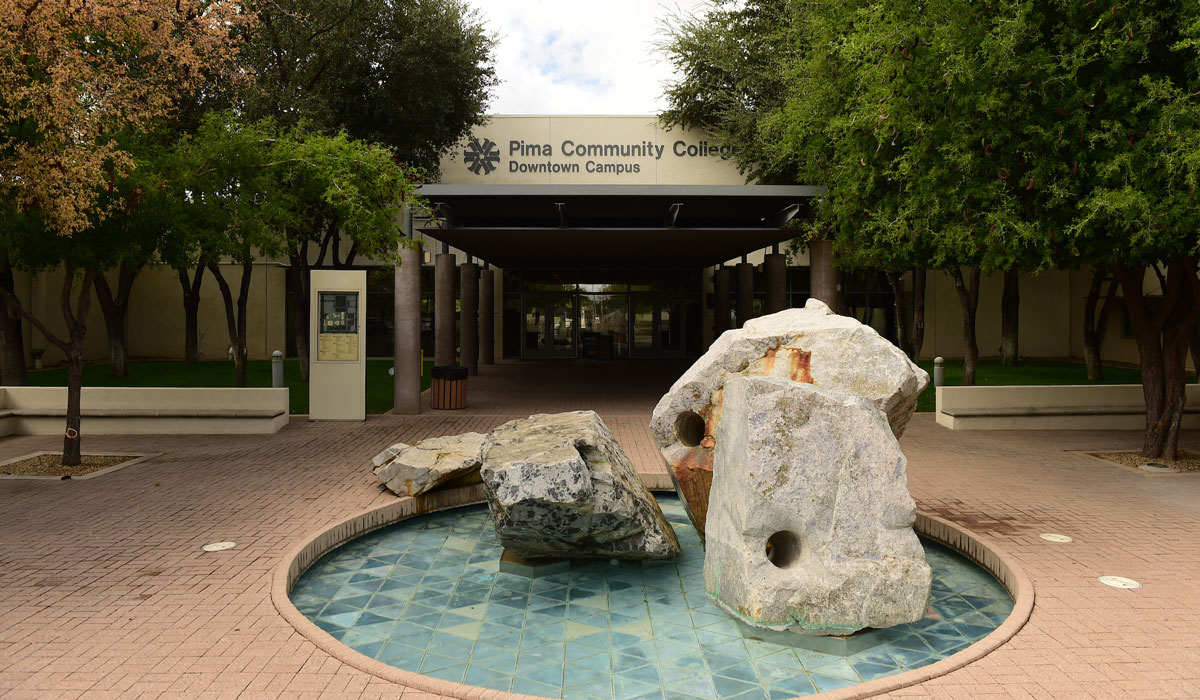
It all started with a phone call. The Catholic University of America was presented with an opportunity to expand into a new region and reach a new population while filling a vital need in Tucson, Ariz. That single phone call initiated what has now become The Catholic University of America-Tucson Program.
The innovative program provides an opportunity for high school graduates living in southern Arizona to earn a four-year business management degree from CatholicU without leaving the Tucson region. It offers an affordable and high-quality option for Tucson area residents to receive a Catholic-informed undergraduate education. The program invests in a new generation’s dreams while helping Tucson families and growing the local economy.
“This expansion to Tucson is a natural extension of what the University does, preparing the next generation of Catholic leaders,” said University President John Garvey. “One of the wonderful things about this program is that we built it from the ground up with the assistance of the business community in Tucson. They came to us and asked us what their next generation of employees was going to need and we were able to design a program that will prepare our students for those jobs, so they can walk out of the University and into positions in their home city with our help.”
CatholicU worked closely with regional government, local business leaders, and the Diocese of Tucson in advance of its eventual partnership with Pima Community College (PCC) to offer the new program.
PCC Chancellor Lee Lambert values the “transformational relationships” this program brings to the community.
“When you bring in a partner like Catholic University, it elevates the profile of the community. It’s transformational in the sense that we’re going to be able to offer more bachelor-degreed individuals to go out into our community to be leaders,” Lambert said.
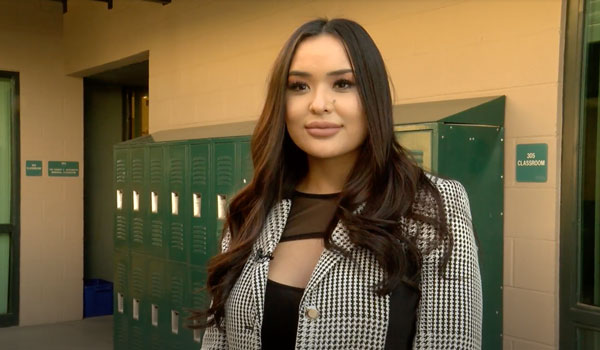
In Fall 2020, the Catholic University-Tucson program launched with an inaugural cohort of 14 students, including Brittney Orozco, who was impressed by the University's commitment to her community.
“There’s untapped potential here," says Orozco, "and this program gives a lot of people the opportunity to participate and show what Tucson has to offer.”
Local business support is a pillar of the program. Barbi Reuter is CEO of Cushman & Wakefield and PICOR, the leading Tucson-area commercial real estate firm and one of the key stakeholders in the Catholic University-Tucson program. She has been part of the community for more than 35 years and knows the importance of developing and retaining a strong workforce there.
“Here is a brand new program that’s responsive to today’s workplace, with characteristics like critical thinking, collaboration, and working on a team," Reuter says. "This is where the opportunity is for students to develop the tools that can be utilized across a broad spectrum of careers.”
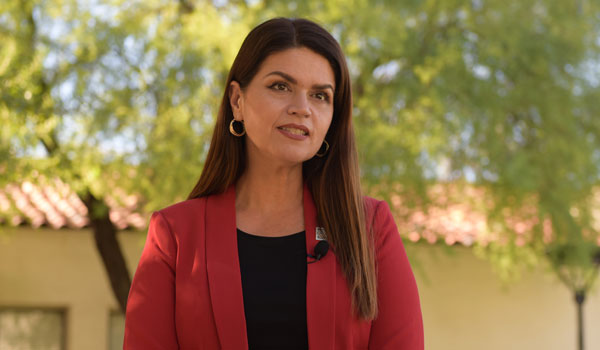
Tucson Mayor Regina Romero agrees, the first Latina mayor of Tucson, she believes that by partnering with PCC the University creates additional economic opportunities for young people and their families.
“The more educational opportunities we offer, the more students graduate with a bachelor’s degree and hopefully move on to a post-graduate degree, the better economy we will have here in the City of Tucson,” she says.
Program courses are administered by CatholicU’s Metropolitan School of Professional Studies and delivered through an online hybrid learning model developed by faculty in the Busch School of Business. Business school Dean Andrew Abela describes the program as “the distinctive perspective of the Busch School bringing Catholic faith to bear on business, and delivered in a way that's affordable.”
Andreas Widmer, clinical assistant professor and director of entrepreneurship programs in the Busch School, is one of many faculty colleagues who helped develop the physically distant program. Widmer continues to ensure the program remains student-focused.
“Through social media and other online tools, we provide opportunities beyond the classroom for coaching, finding employment, and personal growth,” says Widmer.
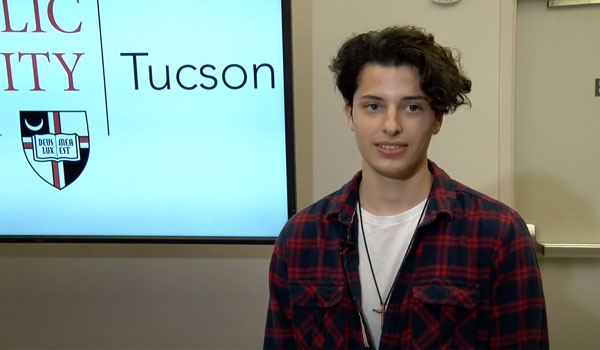
Braulio Quintero, student of the program, confirms the approach appeals to him and his classmates. “This is a great fit for me; every assignment is dedicated to bettering yourself. The professors are very supportive, they genuinely care and want the best for us,” he says. “I see this program as a long-term investment for myself.”
The program combines coursework with career development workshops, business roundtables, mentoring, internships, and “gig work.” Students are particularly enthusiastic about the gig work, which offers hands-on paid work experiences from day one.
Student Dominic Dempsey's gig involves him with auto sales company Jim Click, where he works in the marketing department. “I think the opportunity is fantastic, it provides money and job experience,” he says. “I'm also really excited about more internship opportunities in our junior and senior years.”
“The way the program is laid out made it an opportunity to go to college, stay in my hometown, and help my family with no dorm expense,” adds Juan Salas, another Catholic University-Tucson enrollee who appreciates the value of an education option that allows students to pursue college degrees without having to leave their family and community behind.
Catholic University-Tucson honors the important themes that are fundamental to the undergraduate experience on campus in Washington, D.C., instilling and promoting the same Catholic values through the coursework and community work experiences.
Widmer, who teaches the popular “Vocation of Business” course, explains the objective is to get students to think “about the ‘why’ of business — to understand why you’re doing something and explore the idea of how to achieve human excellence ... to figure out not just how to make a living, but also how to contemplate and make a plan to create a life and career of meaning, excellence, and happiness.”
Michael Inorio, a student in the program, puts it another way. “Most business schools focus on teaching how to make money; this program focuses on learning about how to make investments to help others,” he says.
Overall, the program supports its students in their ambitions of building successful businesses that embody sound ethics and moral values, and in promoting Catholic education beyond high school.
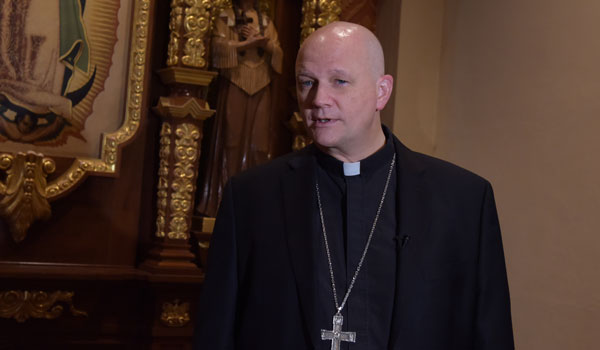
Most Reverend Edward Weisenburger, bishop of Tucson, notes that prior to CatholicU's arrival there had never been a Catholic college within the diocese. “We’re really excited about being able to form some young people through a quality education, as well as a good Catholic foundation, and then put them out into the business community and see what they do there. I think it has tremendous potential.”
Serving the underserved has long been a Catholic tradition, emphasizes Catholic University Provost Aaron Dominguez, for whom the University's endeavor in Tucson has particular significance.
“The expansion in the Tucson area puts us in a place that we haven’t been present, and helps us expand our University into other parts of the U.S. that are underserved in Catholic education,” Dominguez says. As a Mexican-American who grew up in northern New Mexico, he believes “these are our future students and we need to be able to reach out to them and go where they are, to serve the Latino and Catholic population that wouldn’t otherwise have the opportunity to attend Catholic University in Washington, D.C., as a first generation student.”
Likewise, Bishop Weisenburger sees the program as a natural extension of Catholic intellectual tradition and social teaching.
“For us to build upon that now here, in our own diocese, and then weave these graduates into the community is something that has us really excited,'' Bishop Weisenburger says. "So many of Jesus’ parables are about sending out small numbers and the influence they have. A little bit of yeast leavens all the dough.”